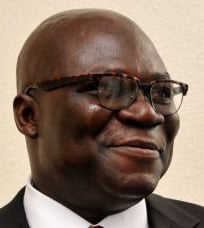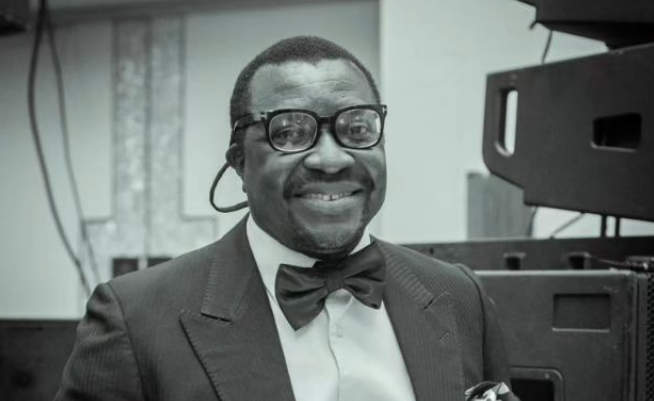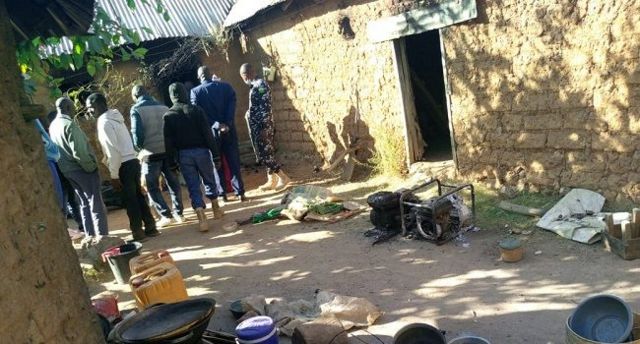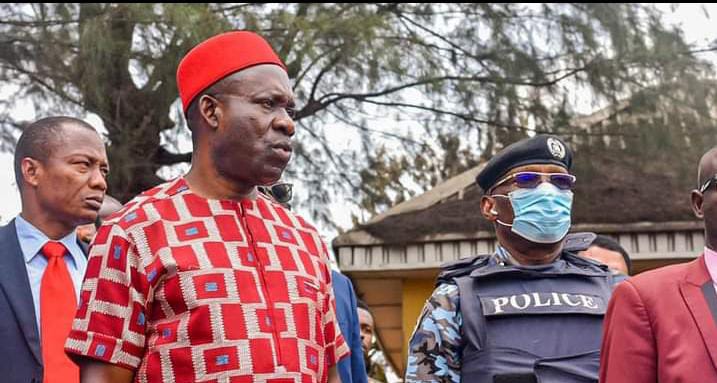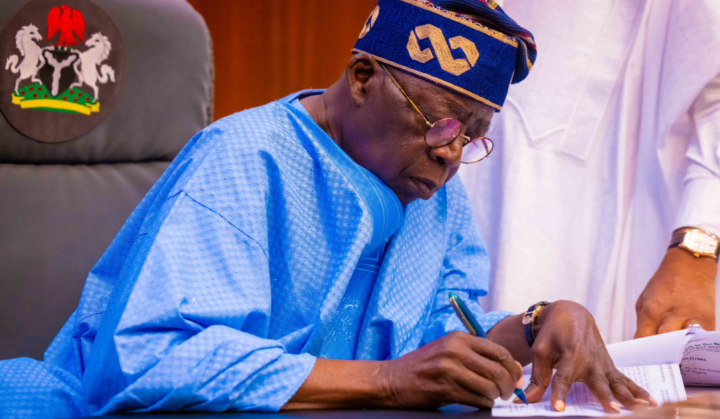It is a new year, a new month, a new day, and fittingly, this is the right moment to look backwards and to the future. One of the major planks of received wisdom is that the past is linked to the present and both offer indications about the future and that is precisely where we are at this moment, that Janus moment of transition, the very significance of the new month. January is named after the Roman God, Janus, who has two faces, and a set of four eyes looking in two different directions. And so, let us begin by looking back at the year 2023 with domestic lenses.
For me, four things stood out in Nigeria in 2023. The first is the fact that it was the year of Nigeria’s seventh general elections since the return to democracy in 1999 and thus represented a major test for the democratic process in the country. It was a test for the electoral framework and the institutions in charge of the management of the electoral process; the Independent National Electoral Commission (INEC), political parties, the security agencies, the judiciary, and the civil society, including the media. Expectations were particularly high among Nigerians in the lead-up to the elections, especially with much hope invested in the review of the Electoral Act 2010, which birthed the Electoral Act 2022.
The new act was different in many significant parts, such as Section 3(3) which requires that electoral funds should be released at least a year before the next election date, Section 29(1) which provides that party primaries and submission of candidates be done at least 180 days before the election date; Sections 47 and 50 which provide legal backing for the use of technology for voter accreditation and electronic transmission of results; Section 54(2) on the rights of persons with disability in need of special care to vote and be voted for; Section 62 which gives legal backing for INEC to maintain an electronic register of votes, Section 65 which says INEC can review results declared by any returning officer under duress within seven days.
Other new aspects of the Electoral Act 2022 can be found in Sections 8(5), 27, 29(5), 34, 84(12), 88 (2-7) and 94. These amendments generated so much excitement that at least one retired resident electoral commissioner made media rounds proclaiming with prophetic candour that the new Act would be a “game changer”, and that the introduction of the Bi-Modal Voters Accreditation System (BVAS) and the INEC Report Viewing Portal (IREV) were technological measures that would prove to be stronger than the Titanic, that is “unsinkable”. Elections were held on February 25 (presidential and national assembly), March 11 (gubernatorial and state houses of assembly) and November 11, viz the off-cycle gubernatorial elections in three states — Imo, Kogi and Bayelsa. Long before the November 11 elections, our enthusiastic promoter of the new Electoral Act had quietly vanished from the media space. He wisely removed himself because the Electoral Act 2022 did not change the game and the introduction of technology failed in a manner worse than the Titanic.
Advertisement
The usual factors that had always abbreviated the integrity of Nigeria’s electoral process proved resilient: there was violence across the states, the exploitation of religion and ethnicity, attempts at voter manipulation, suppression, vote buying by political actors, the rhetoric of hate, open disregard for the peace accords midwifed by General Abdusalam Abubakar’s National Peace Committee, late arrival of voting materials, poor co-ordination between INEC and other agencies involved in election management. INEC mismanaged the technology that it promised, swelling controversies about integrity and accountability. INEC’s excuse was “technological glitches. The people regarded this as an excuse for manipulation. Voter apathy was rife — for the presidential election, voter turnout was 27%, about the lowest since 1999. The declared winner of the Presidential election, Bola Ahmed Tinubu of the All Progressives Congress (APC) won with 8.8 million votes, representing less than 10% of the record 93 million Nigerians who registered to vote. In terms of outcome, women’s representation in elective office was also poor. Many Nigerians however would further remember four things in the 2023 electoral process: Tinubu’s campaign slogan – “Emilokan” (it is my turn), the Obidient Movement which proved to be resilient, the dis-embowelling of the People’s Democratic Party (PDP) and what turned out to be the much-criticised, controversial role of the judiciary. Nigerians are entering a new year with the hangover of the electoral experience of 2023.
The second stand-out issue of 2023 was the poor state of the economy. The statistics as collated and published by the National Bureau of Statistics and other agencies, including The World Bank largely confirmed how Nigeria in 2023 was a victim of stagflation and multidimensional poverty. In the first half of 2023, GDP growth was 2.4%, rising to about 2.8% by the end of the second half. In June 2023, the inflation rate was 22.79%. By November 2023, it was already 28.22% compared to 21,34% in December 2022. Food inflation was a major problem: 32.84% as of November 2023, following an increasing trend year on year. The heterodox policies adopted by the federal government did not help the people. The Central Bank of Nigeria’s wrong-headed introduction of new Naira notes of N200, N500, and N1,000 resulted in cash scarcity, the scarcity of everything else and hardship. The government complained about poor revenue, and the people groaned. The fuel price was N191 per litre in December 2022. On May 29, 2023, President Tinubu on the day of his inauguration as president announced that “fuel subsidy has been removed… it is gone”. This spontaneous declaration further compounded the people’s woes, driving the cost of petrol per litre to N626. Salaries have not been increased. More jobs have not been created.
The government says it plans to obey the law, the Petroleum Industry Act (2021) which the Buhari administration failed to implement in full as the law requires. The Tinubu administration also argues that the removal of fuel subsidy will curb inefficiency and corruption and generate more revenue for the government. Many economists attest to the fact more money has been saved as a result of subsidy removal, hence the sharp increase in federal allocations to the states. But how has this impacted on the people? What the people see is the conspicuous consumption by their elected representatives at both national and sub-national levels, while the people wallow in abject poverty.
Advertisement
The Tinubu administration also harmonised the foreign exchange rate but the naira has continued on a downward spiral against the dollar, even when the dollar is in a weak state. Budget 2024 has been pegged at N800/$1 whereas on December 17, 2023, the CBN announced a new exchange rate of N951/$1, and by December 2023, the parallel market rate was N1,233/$1. Capital importation in 2023 was low with 27 states of the federation getting zero FDI. Many companies have left Nigeria – GSK, P&G, Sanofi, Unilever, Bolt Food, Sanofi, and Jumia due to a poor operating environment.
The irony is that since he assumed office, President Tinubu has been very actively wooing investors from all over the world to come to the Nigerian market. His key economic managers – Minister of Finance, Wale Edun and CBN Governor, Yemi Cardoso have been most emphatic in reminding Nigerians that the Buhari administration left Nigeria in a miserable economic state. The country’s public debt stock for example was N49, 85 trillion in Q1 2023, by the end of Q2, it had risen to N87.38 trillion indicating a growth rate of 75.27% on a quarter-on-quarter basis. Yet, in the 2024 budget, Nigeria is planning to borrow more! The economic crisis that Nigeria faces was driven home on Friday, December 29, when as President Tinubu’s long and conspicuous convoy made its way to the Lagos Central Mosque, the hapless people of Lagos kept shouting: “Ebi n pa wa oh” (We are hungry!). It was a telling moment, underscoring the rich-poor social gap in Nigeria.
The third issue is the insecurity in the land. Nigerians had voted for General Muhammadu Buhari with the firm belief that he being a military general and a war hero would be able to take the war to the bandits, insurgents and terrorists making life impossible in many parts of the country: terrorism in the northeast, insurgency in the north-central, crude oil theft in the Niger Delta, illegal mining in the north eest, kidnapping and agitations in the southeast and southwest. Buhari’s spokespersons including those who went about with the specious title of Buharists kept selling the lie that the government had decimated terrorists. The truth is that the Buhari administration left the country in a worse state security-wise than it met it.
As events unfolded, the year came to an end with attacks on over 50 communities in Plateau state local government areas of Bokkos, Mangu and Barkin Ladi on Christmas Eve and Christmas Day and after. It was reported that about 200 people were killed, over 300 were injured, and over 10,000 were displaced, becoming refugees in their own country. There have also been reports of attacks in Zamfara and Taraba states. For more than two decades, Nigerians have not been able to enjoy the full benefits of Section 14 (2b) of the 1999 constitution which says that “the purpose of government shall be the security and welfare of the people”. The sad thing is that for decades, the Nigerian government set up so many judicial commissions of inquiry on the crisis on the Plateau beginning with Justice Fiberesima Commission, 1994, Justice Niki Tobi 2001, Justice Bola Ajibola, 2009, the Justice Disu Commission and the Sankey Commission. There have also been similar interventions such as the Presidential Peace Initiative Committee on Plateau state, 2004, the Plateau Peace Conference 2004, the Plateau Peace Conference, 2004 and the Presidential Advisory Committee on the Jos Crisis. What happened to the findings and recommendations? Why has nothing changed? Why is the situation deteriorating? The Jos Council of Traditional Rulers had to cancel the celebration of Christmas 2023 in Plateau state. The people entered the new year on a note of grief and sadness.
Advertisement
Their grief was compounded by the strange explanation by the Defence Headquarters that it indeed received over 30 distress calls before and during the carnage, but the troops could not intervene because the terrain was difficult. The same terrain where criminals operated freely for hours and days? The Inspector General of Police has since deployed a team led by a deputy inspector general (DIG) to investigate what happened. Medicine after death! The strangest of all was the Commander of Operation Safe Haven, having the temerity to tell the grieving people of Plateau state that it was the devil’s handiwork and that the situation could have been worse, the military was overwhelmed. Thus, “Operation Safe Haven” has not been able to provide any safety in Plateau state and to see that a military general would be so dumb as to blame the Devil points to the height of insensitivity.
The fourth major issue in 2023 is the lack of trust and confidence in the government by the people of Nigeria. The people are alienated from those who govern them and the reason is not far to seek. At a time the government of the day has been calling on the people as “heirs of the commonwealth” to make sacrifices and work together with the government to move the country forward, people are miffed to see people in government not willing to make any sacrifice. President Tinubu has promised the people “Renewed Hope” but he has been running the most bloated government since 1999. The national assembly has increased Budget 2024 by N1.2 trillion bringing the new total to N28.7 trillion. The lawmakers are more interested in their perks and privileges. Two percent of the budget is earmarked for education in a country where there are over 20.1 million children out of school. The allocation for sports development is a paltry N31.24 billion – 0.11% of the Budget. Meanwhile, the lawmakers have earmarked N12.12 billion as a take-off grant for the National Assembly Library complex, and N3 billion for library books – a library that they have no intention of visiting; books that they may never read! They also want to build a car park with N3 billion. Nigerians have every reason to be angry. Leadership should be about service, not self-interest pursued with unbridled greed.
It is just as well that the president has acknowledged the people’s pains. In his New Year broadcast, he said inter alia: “I am well aware that for some time now the conversations and debates have centred on the rising cost of living, high inflation which is now above 28% and the unacceptable high under-employment rate. From the board rooms at Broad Street in Lagos to the main streets of Kano and Nembe creeks in Bayelsa, I hear the groans of Nigerians who work hard every day to provide for themselves and their families. I am not oblivious to the expressed and sometimes unexpressed frustrations of my fellow citizens. I know for a fact that some of our compatriots are even asking if this is how our administration wants to renew their hope”. It is good to know that the president knows what the people are going through. He needs to know that as they enter a new year, the people also have high expectations, meeting those expectations should be the government’s priority in 2024 to bridge the gap of alienation and rebuild trust and confidence.
The people want the high cost of living reduced. The president must remember the people’s chorus on his way to the Central Mosque in Lagos (“Ebi n pa wa”). Governments at all levels must address the scourge of food inflation. Every step must be taken to create an enabling environment for businesses to flourish, and for the economy to become productive. The government must also tackle high corruption, not by harassing people but by setting up processes and mechanisms to check it.
Advertisement
The report of the CBN independent investigator must not be swept under the carpet. The investigator may have gone beyond his brief by making specific recommendations — that task should have been left to the office of the Attorney General of the Federation or a committee set up for that purpose. Nonetheless, the government must take a look at the findings. The conversation about electoral reform and constitutional amendments is already ongoing. The national assembly must be encouraged to embark on that task very early, far ahead of the next round of general elections. The professional political class and civil society must act as opposition and play their part as true “heirs of the commonwealth”. The government must step up the war against insecurity. The New Year has started. Time waits for no one.
Advertisement
Views expressed by contributors are strictly personal and not of TheCable.
Add a comment
